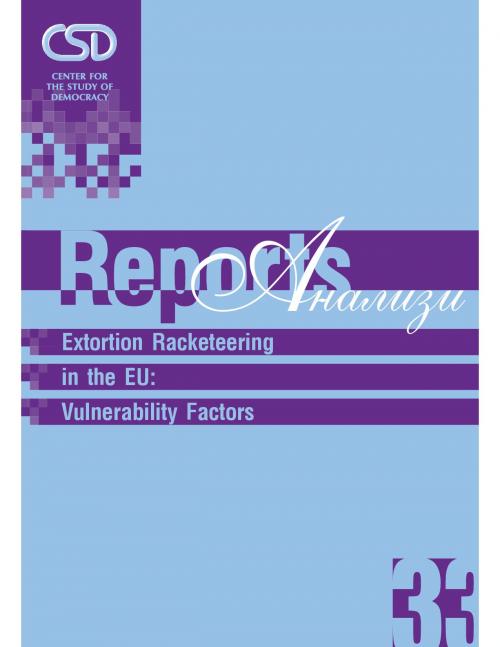
We kindly inform you that, as long as the subject affiliation of our 300.000+ articles is in progress, you might get unsufficient or no results on your third level or second level search. In this case, please broaden your search criteria.


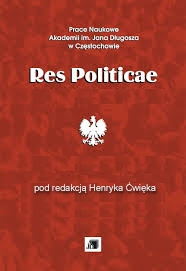
This elaboration applies to analysis of investigation concerning pathology in multimillion cred-iting to important political figures, which was conducted by Central Bureau of Investigation. In the described case the very fact, that person applying for credit was a public figure resulted in aban-doning standard procedures of researching creditworthiness. It caused multimillion losses due to lack of real chance of return on capital. Described dealings show how breaking bank procedures by managers, which were promised public profits, caused the banks to make conscious and unfa-vorable decisions to give politicians nonreturnable financial support. Criminal acts and informal connections between worlds of politics and banking caused multimillion losses, and even worse losses to be covered by treasury – which is us, the citizens
More...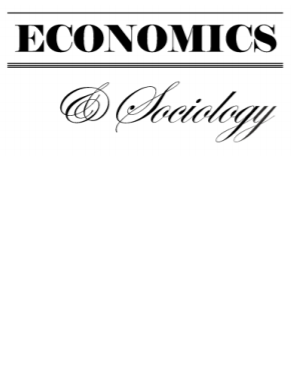
Over the last decades, researchers have been increasingly studying the field of emotional intelligence and knowledge management. However, the interaction between these two important factors has not received sufficient attention thus far, therefore this paper aims to assess it. The goal of this article is to assess the impact of emotional intelligence on the willingness of knowledge transfer and examine additional factors (such as gender and generation group). The research sample (N=508) consisted of employees of Slovak SMEs. The study was conducted in June-August of 2022. A two-way variance analysis and a binomial logistic regression were applied. In the case of Hypotheses 1 and 2, Emotional Quotient (EQ) figured as an independent variable, while gender and generation group were independent categorical variables. In the case of Hypotheses 3, 4 and 5, a model was set up using logistic regression, where the EQ, gender and generation group were all independent variables. The results show that gender has a real impact on the level of EQ. The willingness of knowledge transfer is influenced by both the level of EQ and gender. The importance of emotional intelligence in connection to knowledge transfer was examined during the crisis caused by COVID-19 and the Russia-Ukraine war, thus expanding the knowledge related to human resources. Previous research on the topic is quite limited and the present study is unique in considering the issue in the context of SMEs and the CEE countries.
More...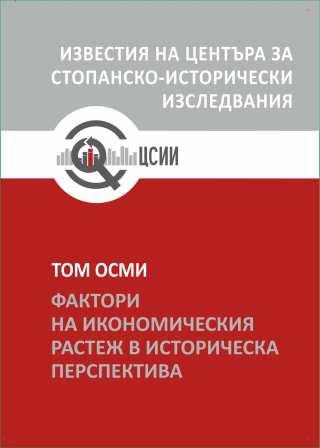
Razgrad is a settlement that grew and developed as an Ottoman city. In this sense, it is a suitable example for the study of demographic, religious, economic and cultural processes and interactions as a counterbalance to settlements with pre-Ottoman roots. The present study focuses on the economic development of the city with an emphasis on the 19th century. The focus of the research will be on the trade and commercial centers that are found in the city during the time period set. In this sense, we will try to answer the question to what extent trade is a marker of economic growth. We attempt to trace their species diversity, ownership, and neighborhood distribution. The examples given in the study regarding trade and the places of trade exchange are a sure indicator of its slow recovery and economic growth in the 19th century. Its economic growth is clearly visible. The available data allow us to talk about a process of gradual densification of the professional and craft profile of the city, covering all spheres of the city's economy. The economic production profile of Razgrad derived in the research does not allow us to single out a narrow specialization of the population in any specific sector. Razgrad's economy is structured in such a way that it aims to cover all economic niches and thus satisfy the comprehensive needs of the Deliorman resident.
More...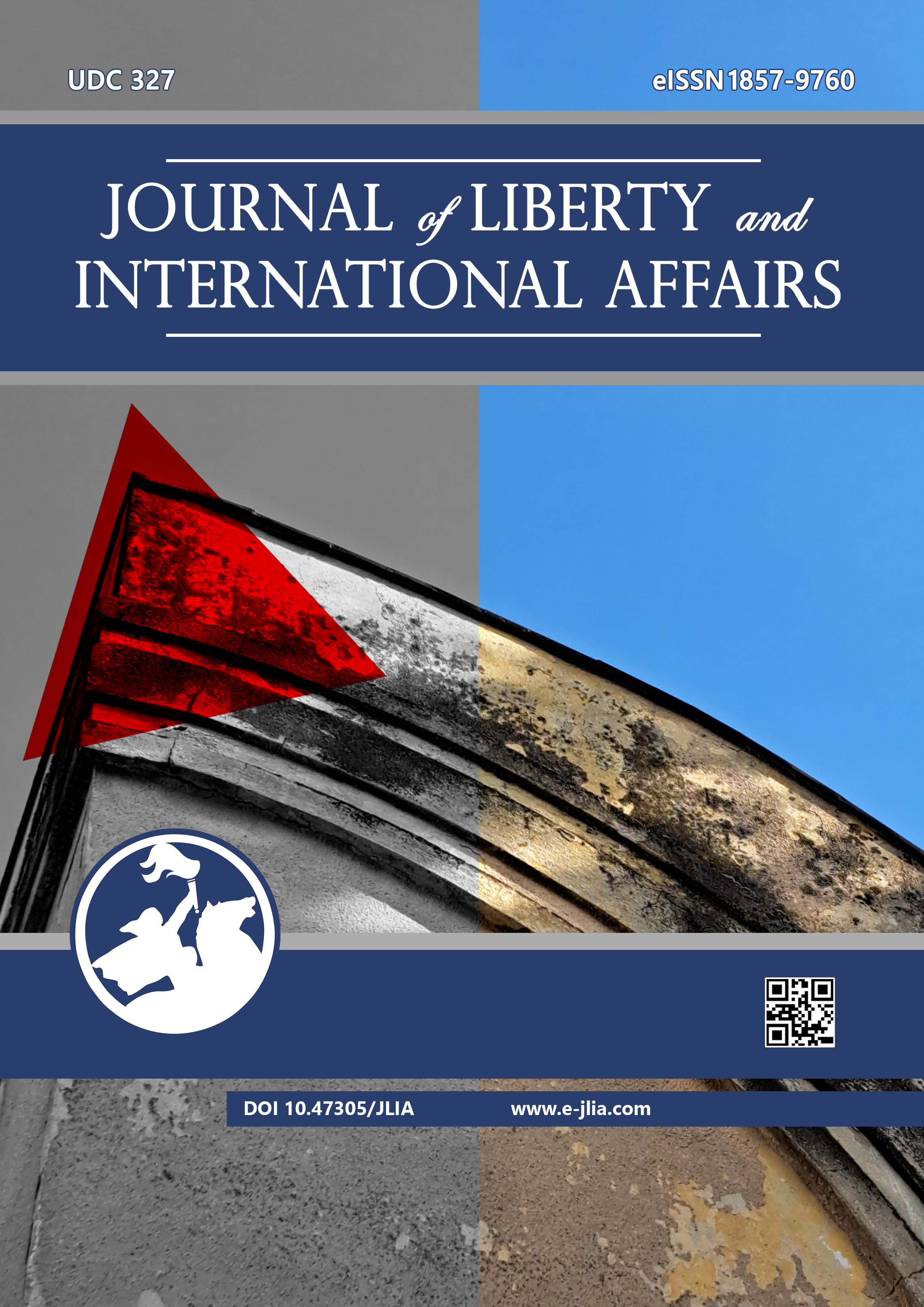
The core objective of this study is to explore whether the installation of automated teller machines (ATM) and commercial bank branches (CBB) affects the profitability of the banking systems in Kosovo and North Macedonia. Additionally, several influential variables, such as bank capital-to-assets (BCA), inflation (INF), and GDP growth (GDP_G), were used in the research. More specifically, the research deals with secondary data from 2010 to 2022 using the dynamic data analysis technique generalized method of moments (GMM). The evidence indicates that ATM adoption has a substantial positive influence on bank profitability. Similarly, BCA and GDP_G have a positive influence on bank profitability. Nevertheless, CBB and inflation have had a substantial negative influence on both metrics. The research’s scientific merit and novelty are derived from features unique to earlier studies. The study claims to open up new avenues of debate involving scholars and legislative authorities about identifying influencing components of profitability in the banking business.
More...
The research aims to broaden the current discussion surrounding the intricate relationship between Human Resource Management (HRM) and Total Quality Management (TQM) within the realm of private enterprises in Kosovo. The paper suggests that the arrangement and presence of HRM practices influence the successful implementation of TQM. Data was collected from a diverse range of companies, with 171 employees participating in the study, to explore this relationship. The collected data underwent analysis using Partial Least Squares Structural Equation Modelling (PLS-SEM) via path analysis, enabling a thorough examination of the causal connections between the variables. Investigation delves into the overall impact of HRM on TQM, with a specific focus on enhancing quality orientation and criteria related to individuals within the selected companies. The findings highlight the substantial and positive influence of teamwork, staffing, performance appraisals, and compensation on TQM. Conversely, training and development exhibit a noteworthy negative impact on TQM. Furthermore, the research demonstrates the significant and favorable effect of TQM on HRM practices within organizations. Additionally, performance outcomes exhibit positive and significant correlations with HRM. These outcomes underscore the fundamental significance of TQM as an integral component of HRM within the realm of private enterprises.
More...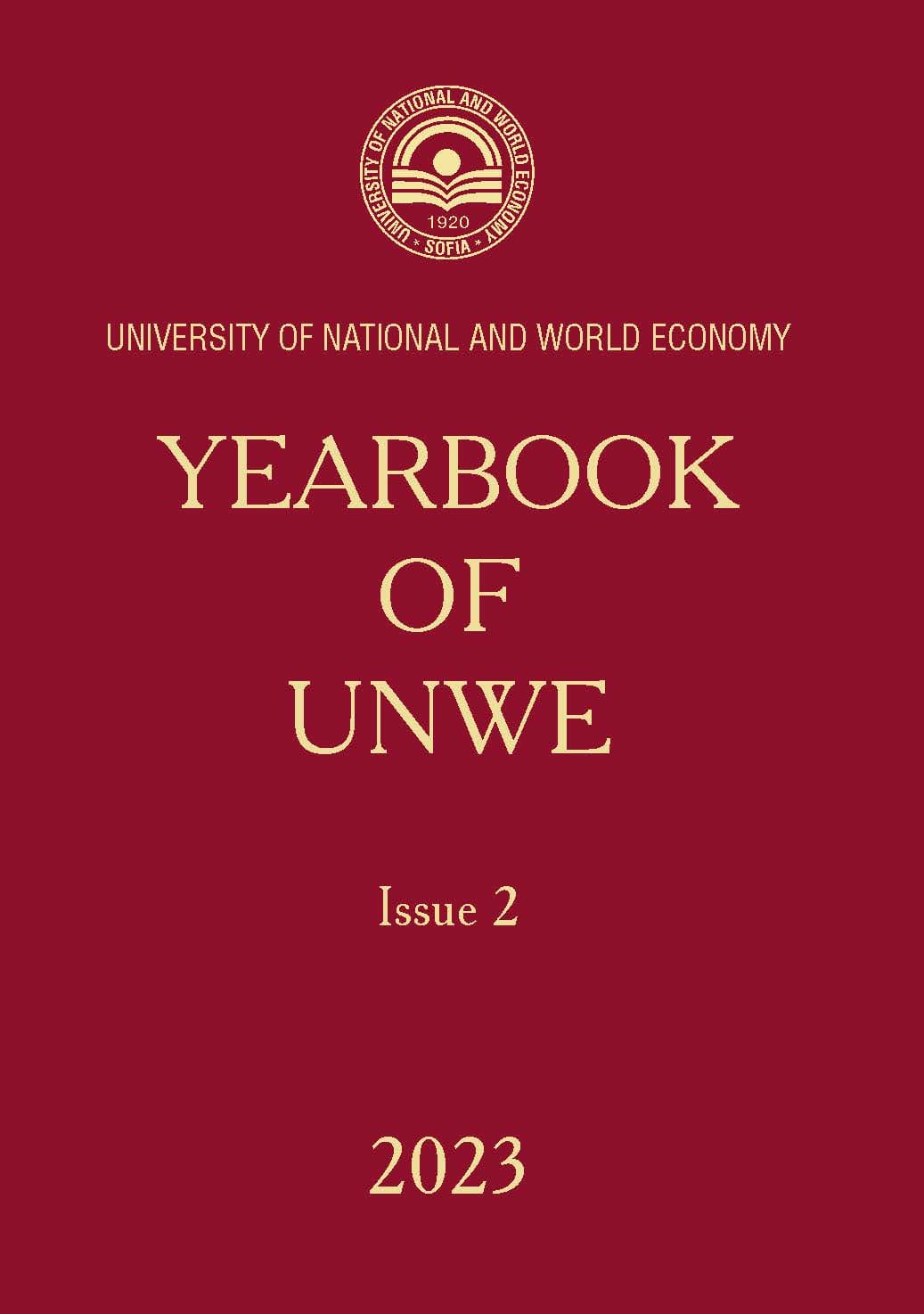
The research aims to understand whether, and to what extent, there are currently suitable institutions for the implementation of prevention and restoration of legality in the corporate sphere in the Italian legal system. These, if properly applied, should enable the enterprise to transform a negative event, such as mafia infiltration in its various forms, into an opportunity for improvement itself. More specifically, an attempt will be made to assess the ability of institutions such as judicial administration (Art. 34 of the Anti- Mafia Code - Legislative Decree No. 159/2011), judicial control (Art. 34-bis), voluntary judicial control (Paragraph 6, Art. 34-bis), preventive cooperation (Art. 94-bis), and organizational and management models under Legislative Decree No. 231/2001 (so- called Models 231) adopted ex post facto to put the company back on the correct path of legality.
More...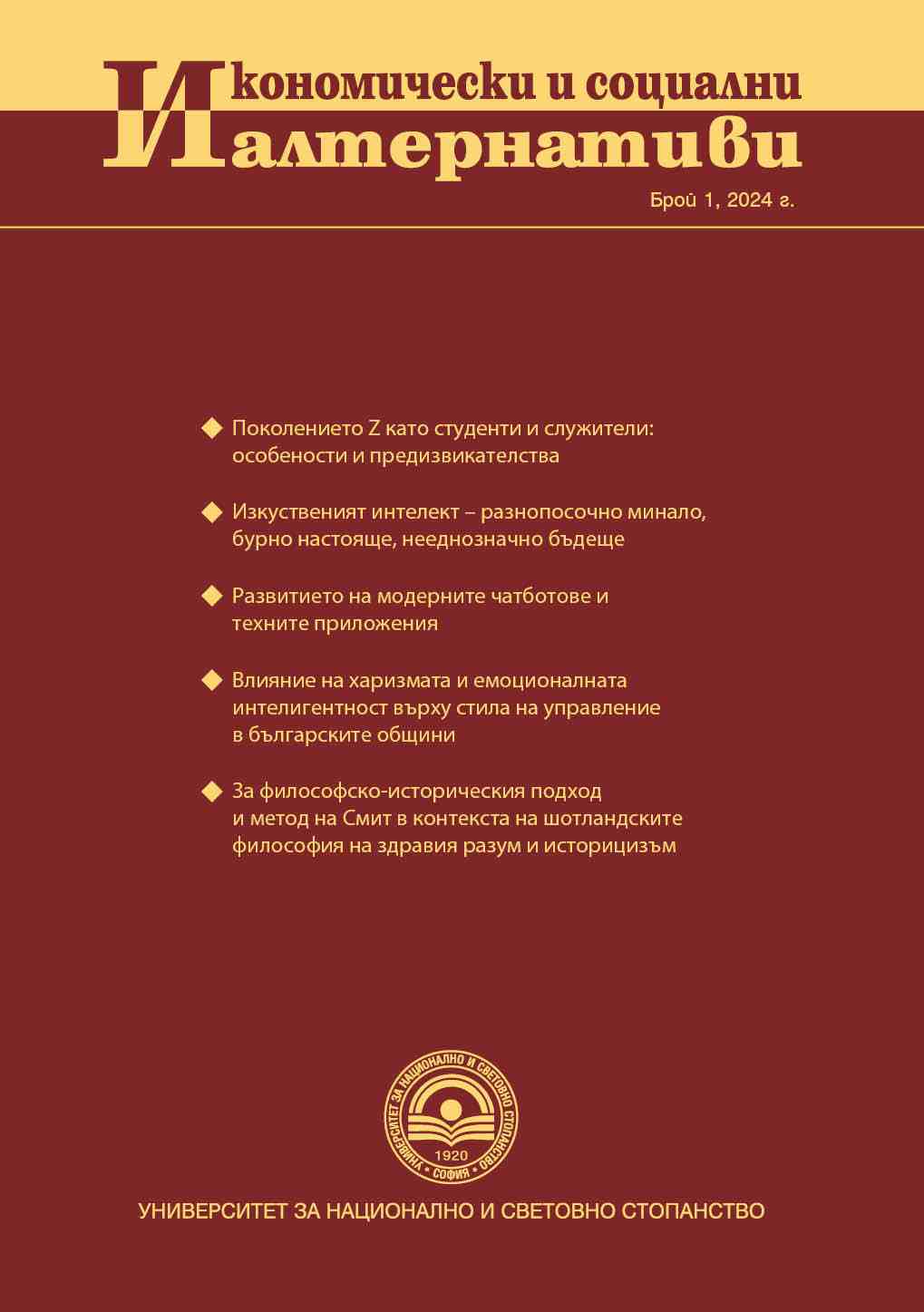
This article aims to explore and present charisma and emotional intelligence as factors influencing the leadership style in municipal administration in the Republic of Bulgaria. Data from a self conducted online survey among mayors in Bulgarian municipalities, including regional mayors in the cities of Sofia, Plovdiv, and Varna, has been used. The research started in June 2022 and ended in September 2023, with responses obtained from 57 mayors. The article focuses on three of the questionnaires used in a broader research project on leadership models in local self-government. The forms distributed to mayors are for self-assessment and to individually investigate the factors of charisma, levels of emotional intelligence, and the implementation of a transformational leadership style. The analysis methods include cluster analysis, calculation of the mean arithmetic value, correlation analysis, and testing of statistical hypotheses. The analysis identifies and presents the mean values of charisma, the mean values of emotional intelligence, the degree of applying a transformational leadership style, that constitute it, for each mayor and the entire population. Additionally, the analysis explores the dependence between the three variables collectively, based on gender, municipality-region, and depending on the size of the municipality or region. The derived results allow the construction of a profile to select candidates for public positions and to investigate their impact on the financial and economic indicators of the respective municipality or region, as well as on the image of the mayor and the municipality or region in the public sphere.
More...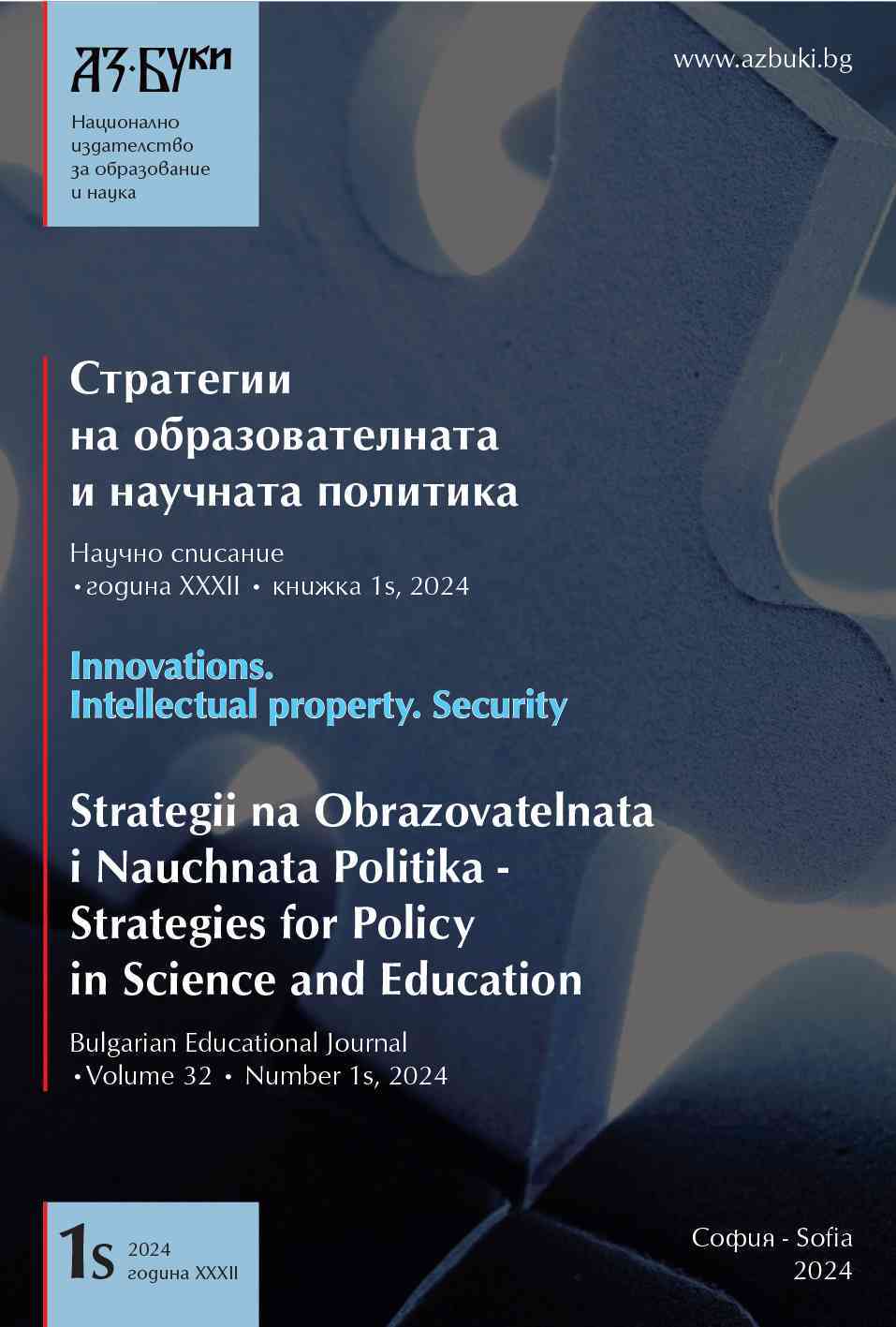
The purpose of the article is to determine the place and importance of Chain of Title of a film or other audiovisual work, which is the basis of the successful sale of film industry products. The role of Chain of Title for film producers is imputed by film distributors, sales representatives and broadcasting organizations. The importance of proper and prompt formalization of business relationship between the industry product creators – which are the intellectual property rights holders, and the film producers is fundamental to the possibility the producer to generate revenue and profit from the film that will recoup the investment made, and also to provide rights holders with additional remuneration. In the Republic of Bulgaria, for the producers of films and other audiovisual works, the issue Chain of Title is still not fully clarified and the article focuses on the process of presenting this essential information from the point of view of the current regulations in the field, the requirements of distributors, broadcasters, and to present the author’s experience in obtaining the Chain of Title process. The methodology used, allows to present accessible and practical information, both for professionals in the field of the film industry, as well as for teachers and students.
More...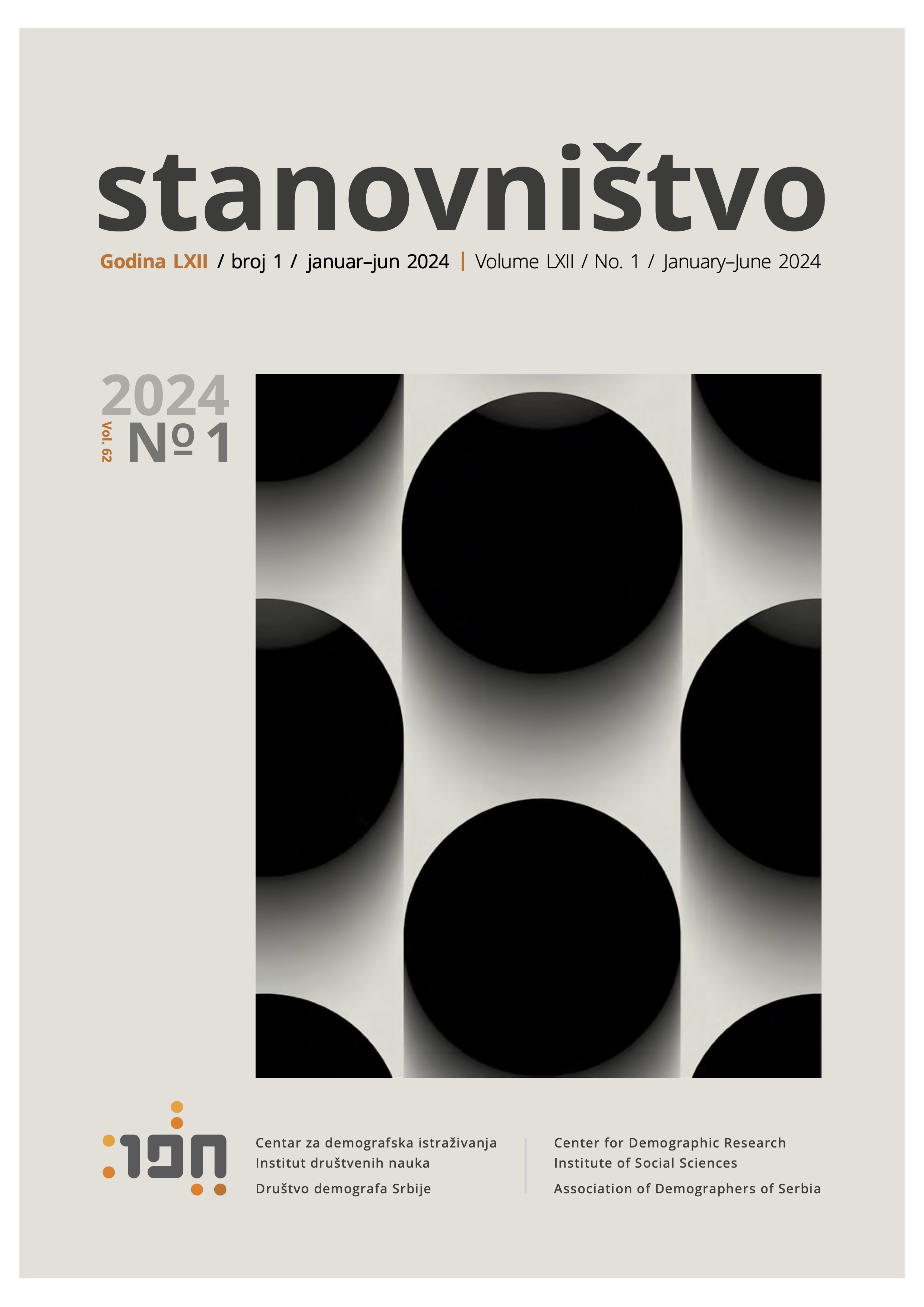
Migration is one of the most current topics in the world today. The most common causes include wars, or climate changes, while there are also migrations caused by economic reasons, and their goal is pursuit of better material existence, achieving a higher standard of living, better conditions of employment, education, and therefore better conditions of life. The subjects of this analysis are economic migration and contemporary migration trends, i.e. the immigration and emigration of foreigners to and from the countries of the Western Balkans (WB). Macroeconomic indicators point to the stabilization of labour markets in the second decade of the 21st century, although economies have been stagnating. The question arises whether this is a consequence of a higher rate of economic growth or is it induced by depopulation and reduction of the working population? The aim of the paper is to point out the necessity of managing migration flows in these countries and the need to guide migrants in the labour market. The paper consists of two parts. The first part provides an overview of previous research on migration, the concept and types of migration. The second part of the paper consists of an empirical analysis of migration in the countries of the Western Balkans and Serbia and their impact on the labour market and economic development.
More...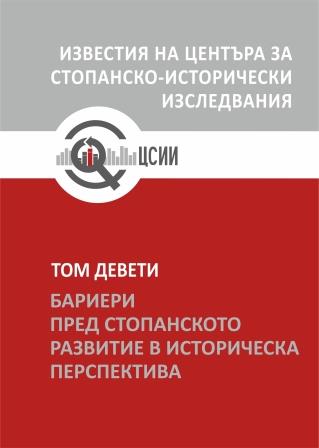
The emergence of a new institution with religious and political influence inevitably leads to the imposition of new and the abolition of already established social practices. Some economic activities are affected during such periods – if they do not disappear, they suffer significant losses for a certain period. Such is the case with the incense trade. By the middle of the 4th century, incense was used daily in religious rituals in temples, private homes, and all public places where it was customary to perform them. The establishment of Christianity as the only state-recognized religion on the territory of the Roman Empire led to a sharp decline in the consumption of incense, first in temples and public spaces, and gradually in rituals in private homes. In this sense, the religious practices established by the Church were a barrier to development, which led to the decline of the frankincense trade and some trade centers such as Petra.
More...
The publication is a continuation, supplement, and summary of several previous studies devoted to the economic relations between the company „Hadzhi Mincho Tsachev and Company“ from Tarnovo and the Tapchileshtov brothers (Hristo and Nikola) in their trade in metals (copper, iron, and steel), tallow of animal origin, and buffalo hides. This publication provides information on the exchange of other goods and raw materials between the mentioned contractors: raw silk, cordovans, wheat, yellow cheese, caviar, coffee, olive oil, and soap. It also presented information about the assistance that the Tapchileshtov brothers (mainly Hristo Tapchileshtov) have provided to the partners in the Tarnovo company in their activities on the purchase and exploitation of state sources of revenue. The present publication, as well as the preceding ones, is prepared mainly based on previously unused Greek-language documents (letters and transcripts of letters). The research method is thematic-chronological. The conclusions we reach are: The information on the topic of the relations between the trading company „Hadzhi Mincho Tsachev and Company“ and the Tapchileshtov brothers is fragmentary, and it is not possible to make a complete analysis of the trade exchange that has taken place between them (quantities of goods sent, their value, financial turnovers, respective profits, etc.). It can be assumed that the beginning of the economic relations between the company „Hadzhi Mincho Tsachev and Company“ and the Tapchileshtov brothers was established in 1847. The exchange of goods is two-sided. The Tapchileshtovi brothers (together or independently) sent to their partners in Tarnovo the following raw materials and goods: metals, caviar, coffee, olive oil, soap, and dye. The Tarnovo company sent to the Tapchileshtovi brothers (to both or one of them): tallow, buffalo hides, raw silk, cordovans, yellow cheese, wheat and possibly corn. The economic operators in question also carried out commission activities. The Tapchileshtovi brothers assist the company „Hadji Mincho Tsachev & Company“ in its activities on the purchase and exploitation of state revenue sources. This is what Hristo Tapchilestov is mainly involved with. The documents testify that the contact between the Tarnovo company and the Tapchileshtovs lasted until the spring of 1855, i.e., until the murder of Hadji Mincho.
More...
The socio-economic situation of the town of Karlovo and the surrounding area after 1878 was difficult, and the prospects for economic development were uncertain. The new economic realities and free competition accelerated the process of decline of the old crafts and livelihoods, while the local authorities and the central government failed to support the local craft and textile industries. The transition from proto-industrial to factory production proved unsuccessful in the first decades after 1878, despite isolated successful initiatives. A significant, but not sufficiently studied factor hindering the development of Karlovo and the region during this period were natural disasters, especially water-related ones. This paper will examine the consequences of water-related natural disasters that were a significant barrier to the economic development of Karlovo in the early 20th century. As will be seen, these processes were not isolated only around the Balkan Mountain, but occurred throughout Thrace, north-central and southwestern Bulgaria. In 1905 and 1910, two major water-related natural disasters occurred, causing considerable damage to the population and the underdeveloped economy of the town and the region. The paper traces how and why such devastating consequences occurred, and what measures were taken by local and central government to solve the problem? Were they successful or did vested interests and local power struggles prevailed?
More...
The study presents the professional development of Stefan Pipev –a graduate of the Academy of Economics in Wien, a third generation trader, industrialist and a partner in the brewery Prosek Brothers. The accent is put on the period from 1907 until 1927 when Stefan Pipev was managing the brewery on his own and in a partnership the industry established by the Prosek brothers. He succeeds in keeping the relative rise of the production and modernizes it with new technologies. His management coincides with multiple crisis - a fierce competition between the beer brewers, a lot of bankruptcies, raising excised duty, and the economic disruption caused by the Balkan, the Second Balkan War and the World War I. Despite the unfavourable circumstances the Bulgarian entrepreneur succeeds to fight off the competition and keep the trademark Prosek in the top three brewery industries. For the purposes of the research are studied documents from the State Archive –Sofia and State Archive – Veliko Tarnovo. Despite the low number of scientific and popular publications about Stefan Pipev all of them have been used in the study.
More...
Die Geschichte Schäßburgs ist seit Jahrhunderten mit Leben und Schaffen der Zunfthandwerker verbunden. Die Zünfte waren diejenigen, welche Maßstäbe des wirtschaftlichen, sozialen, militärischen und politischen Lebens setzten. Der Wohlstand der gesamten Stadt hing von der Entwicklung des Handwerks ab. Die Auflösung der Handwerkszünfte im Jahr 1872, führteschließlich dazu, dass das Museum deren Güter durch Spenden übernahm. So kam eine Reihe von handwerklichen Artikeln hinzu, die sich durch ihre Qualität und ihre außergewöhnliche Form auszeichnen, welche uns diese - ohne Zurückhaltung - in die Kategorie der Kunstwerke einordnen lässt. So auch bei einem gedrechselten Holzgefäß mit der Inventarnummer 514. Dieses Gefäß hat eine Höhe von 38 Zentimetern, der Durchmesser der Vase beträgt 13 Zentimeter und an ihrer Öffnung 9,5 Zentimeter. Sie hat auch einen Holzgriff, der aus dem gleichen Material ausgehöhlt wurde. Der Deckel fehlt. Außen ist sie schwarz lackiert und mit einem Emblem bemalt, das ein Schild über dem sich eine Krone befindet darstellt. Auf der Verzierung ist auch die Jahreszahl 1744 erkennbar. Aus dem von Julius Misselbacher erstellten Aktenblatt geht hervor, dass sie dem Bürgermeister der Stadt Josef Gull gehörte. Das Gefäß ist aus Holz gedrechselt und war vermutlich eine Wahlurne der Glockengießerzunft.Die Anwesenheit der auf das Drechseln spezialisierten Handwerker in Sighișoara zeigt, dass sie die notwendigen Techniken des Drechselns von Holz in Europa kannten. Die Kunstfertigkeit,mit der dieses Gefäß ausgeführt wurde, zeugt von der tiefen Kenntnis des Handwerks der Holzdreher, welche ihre Berufserfahrungen durch Reisen als Lehrburschen auf dem europäischenKontinent vertieften. Nicht zuletzt, kannte der Besitzer dieses Gefäßes die Moderichtung der Zeitund wollte sein Haus so ausstatten, wie es auch seine Zeitgenossen aus dem Westen des Kontinents eingerichteten, wobei die künstlerische Genauigkeit, mit der er dieses tat, zu der Vervollständigung unseres Bildes von der Privatsphäre und den damaligen Denkweisen beitrug.
More...
This text reviews David Megger’s 2021 book entitled Justice in Welfare Economics. Libertarianism and the Austrian School (in Polish: Sprawiedliwość w ekonomii dobrobytu, liberatarianizm i szkoła austriacka). The review takes a critical approach, highlighting the most significant aspects of the presented considerations and emphasising their uniqueness and complexity. I intend to extensively discuss the author’s theses concerning the modification of the fundamental claims of Austrian school representatives about justice and welfare, highlighting both their strengths and weaknesses.
More...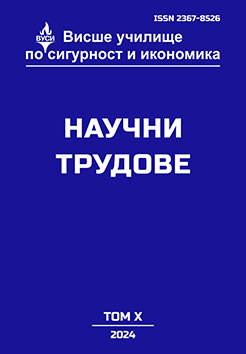
The present article aims to explore the potential and the challenges facing the development of this part of the tourism sector. Bulgaria's potential as a medical treatment destination has grown significantly in recent years, primarily due to the enhancement of medical care and the advancements made by numerous healthcare facilities in the country. Medical tourism is a rapidly expanding market segment. While some stakeholders, such as the government and hospitals, express interest in its growth, others remain cautious and lack clear action plans and communication channels. The sector's functioning is primarily hindered by the individual interests of its various stakeholders, including hospitals, clinics, health care and tourism associations, as well as representatives from Bulgarian businesses and trade authorities. According to the surveyed experts, the imposition of strict regulations and rules hinders the development of medical tourism in Bulgaria and negatively impacts the sector's ability to overcome its challenges. Medical tourism, the development of a national brand, and bilateral agreements in the field of health and tourism with target markets and countries are the elements of working for positive growth in the sector, taking its full and substantial advantage, and overcoming stagnation and negative tendencies.
More...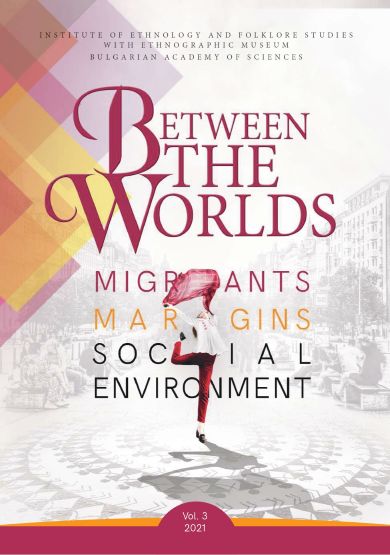
This paper examines the impact of both the privatisation and restructuring, or outright liquidation, of manufacturing facilities and the prolonged reduction in public spending in the post-communist epoch on blue-collar people in Galati, Romania. It is based upon circa 30 months of anthropological research from 2004 to 2019. Galati, a moderately-sized city in Eastern Romania, underwent economic and demographic expansion during the communist period, the construction of a steel plant and other factories attracting agrarian labourers from villages to perform industrial work that offered higher wages and better entitlements than available from farming. The neoliberal transformation of the economy that began after the 1989 revolution has diminished the city’s appeal due to well-paid work in industry all but evaporating and revenue for the public sector drying up – employment upon which working-class people can maintain families is largely gone and state support for housing, healthcare services, education, research and development, infrastructure and more has been severely trimmed. These changes have resulted in blue-collar people being forced to locate work outside the city, often abroad, on terms that can be very unfavourable and for families who live in the city to manage as best they can in spite of reductions in the public sector. The paper presents ethnography of the multifaceted consequences of these shifts, including social fragmentation, marooning of elderly kin, working retirees and more. In conclusion, the suggestion is made that political leaders begin paying closer attention to the conditions of working-class people for the betterment of the entire society.
More...
Beekeepers in Mayo Darle consider beekeeping to diversify their income sources. Nonetheless, this agricultural sub-sector is confronted with so many challenges ranging from limited knowledge and skills in production, pests and diseases, the dominance of informal sales channels, and poor-quality products are key challenges in production and marketing that affect the livelihoods of beekeepers. The main objective of this study was to explore the impact of beekeeping on people's livelihoods in the Mayo Darle Sub-Division of Cameroon. Specifically, the goal was to analyzed the financial benefits of beekeeping alongside its impact on the human, natural, social, and physical capital of beekeepers in Mayo Darle. The explanatory-sequential method was employed. Fundamental information was collected using a structured questionnaire and comprehensive interviews. A total of 175 surveys were conducted using stratified simple random sampling. The information was supplemented by secondary sources from both published and unpublished resources. Both descriptive and inferential statistics were utilized. The research results regarding the effects of beekeeping on livelihoods indicated an increase in financial, human, natural, social, and physical capital. The results from Spearman's Product Moment Correlation indicate a notable positive association between the number of bee hives owned by a farmer and the age of a farmer (r(n= 175) = 0.25, p = 0.001), the number of bee hives held by a farmer and the household size (r(n= 175) = 0.308, p = 0.000), as well as the number of bee hives held by a farmer and monthly income (r(n= 175) = 0.248, p = 0.001). The empirical research findings show that beekeeping has beneficial effects on the lives of beekeepers and should therefore be encouraged as a livelihood option in the Mayo Darle Subdivision. Essentially, the results of this research will offer valuable knowledge regarding the impact of beekeeping on livelihoods in Mayo Darle Sub-Division for groups advocating beekeeping and environmental conservation, beekeepers, and other farmers, and will guide policy to enhance management of these impacts, leading to better beekeeping methods.
More...